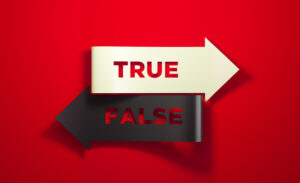
It is a common misconception that a person charged with a misdemeanor will not see their case go to trial. While most cases do not get to trial, it is certainly true that many misdemeanor cases do end up before a judge or jury. Keep reading to get the facts, and remember that you can contact Law Office of Michael L. Fell at (949) 585-9055 for a free legal consultation with an experienced criminal defense attorney.
The Vast Majority of Misdemeanor Charges Do Not Go to Trial
The vast majority of misdemeanor charges are settled without the need to go to court. This might be because the prosecution did not have enough evidence and dropped the charges, or the defendant might have agreed to a plea bargain that provided an acceptable outcome compared to the possibilities at trial. When a case is not taken to trial, it goes to the sentencing phase through the criminal court process.
Understanding Misdemeanors
In most jurisdictions, a misdemeanor offense is one in which the maximum potential jail sentence is less than one year. It is a more serious situation than getting an infraction, but it is not as serious as a felony charge. Common misdemeanor charges including DUI, assault and battery, and disturbing the peace. There are many wobbler offenses in California, which means the prosecution can determine if you should be charged with a felony or a misdemeanor based on your criminal history and the specifics of the case.
You Have a Right to a Trial in Front of a Jury (in Most Cases)
While most misdemeanor cases do not go to trial, the defendant does have the right to plead not guilty and elect to go forward with a jury trial. The U.S. Constitution makes it a right for a person to have a jury trial – but only if the offense they are facing is punishable by at least six months in jail. This includes most misdemeanors.
There Are Many Ways to Avoid Going to Trial
There are a number of ways a defendant can work to avoid going to trial. They can plead guilty or no contest to the misdemeanor, they can accept a plea bargain, or their attorney can convince the judge or prosecutor that there is not enough evidence to move forward to trial.
Steps in a Jury Trial
If your case does go forward to trial, then it will involve several steps, including jury selection, opening statements, presenting evidence, closing arguments, and jury deliberation. If you are found guilty, then the final stage will involve sentencing.
If you are facing any charge, it is always worth talking to a criminal defense attorney to find out what your options are. You can contact Law Office of Michael L. Fell at (949) 585-9055 now to request a free legal consultation.

